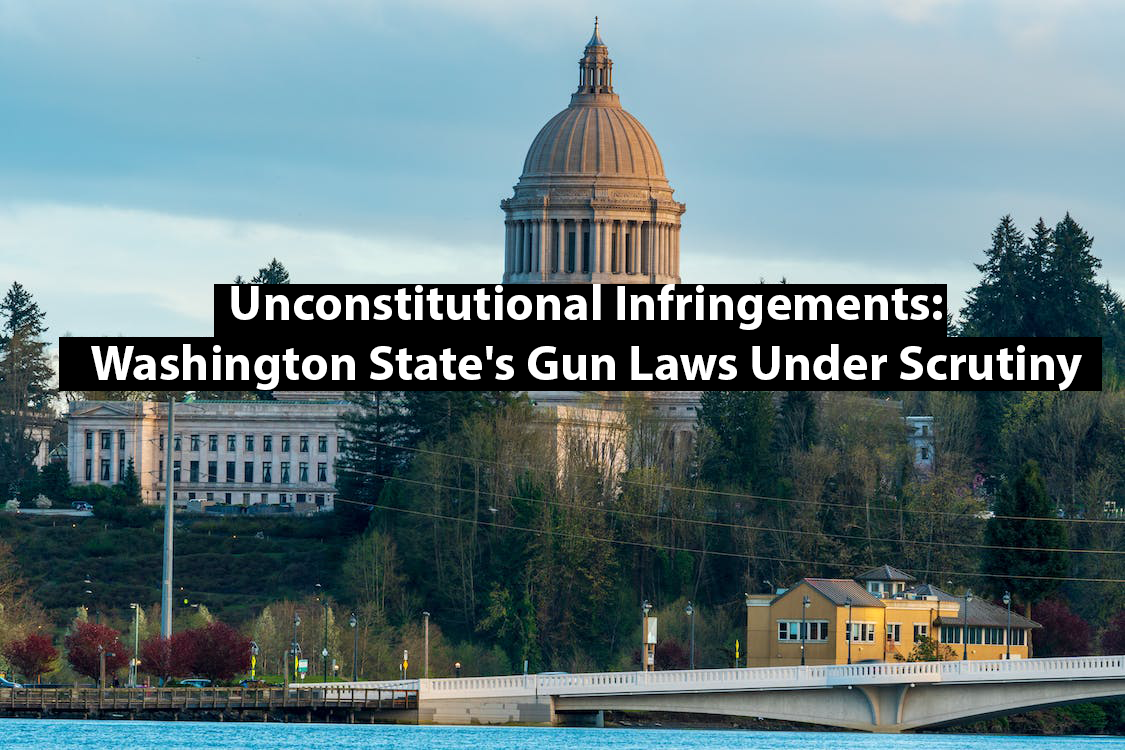Washington State’s constitution, much like its federal counterpart, enshrines the right of individual citizens to bear arms for self-defense or defense of the state. However, recent legislative measures in the state seem to clash with the clear and concise language of Section 24 of the 1st article, raising concerns about the constitutionality of certain gun regulations. This article aims to shed light on the perceived infringements on the rights of law-abiding citizens, focusing on bans on certain firearms, extended waiting periods, delayed Concealed Pistol License (CPL) issuance, and the broader definition of “arms.”
I. Firearm Bans: A Constitutional Conundrum
The Washington State Constitution explicitly protects the right of individual citizens to bear arms, yet recent laws impose restrictions on certain rifles and magazines with capacities exceeding 10 rounds. This raises a critical question: does such legislation infringe on the constitutional rights guaranteed by Section 24? The unequivocal language of “shall not be impaired” suggests that any restrictions on the right to bear arms may be constitutionally questionable.
II. Extended Waiting Periods and Expedited Background Checks
While background checks are a crucial component of responsible gun ownership, the imposition of a 10-day waiting period appears excessive when most background checks conclude within the same day. This delay arguably infringes on the right to timely access arms for self-defense purposes. Striking a balance between public safety and individual rights becomes imperative to ensure that the waiting period is reasonable and not an undue burden on law-abiding citizens.
III. CPL Issuance Delays: A Constitutional Quandary
The issuance of Concealed Pistol Licenses is an essential aspect of exercising one’s right to bear arms discreetly. However, the discrepancy between the legally mandated 30-day issuance period and the actual two-month delays experienced by applicants raises concerns. Such delays arguably impede the expeditious exercise of constitutional rights, necessitating a reevaluation of the CPL issuance process.
IV. Defining “Arms”: Beyond Muskets and Hunting Rifles
The U.S. and Washington State constitutions refer to the right to bear “arms” without specifying muskets or Hunting Rifles. This leaves room for interpretation regarding the legality of various firearm types, including automatic, semi-automatic, and bolt-action rifles. Arguably, restricting certain firearm types may not align with the framers’ intent, as arms encompass a broad category of defensive tools.
Impact on Crime Rates
In addition to the constitutional concerns surrounding Washington State’s recent gun regulations, it is essential to examine their effectiveness in achieving their intended purpose of enhancing public safety. Regrettably, the evidence suggests that these infringements have not yielded the desired outcomes.
Contrary to the expectations that firearm bans and extended waiting periods would contribute to a decrease in crime rates, the data indicates a different trend. Reports indicate that crime rates, including homicides, have increased since the implementation of these measures. This raises significant questions about the efficacy of these regulations in addressing the root causes of criminal activities.
The notion that restricting certain types of firearms would inherently lead to a safer society appears to be inconsistent with the observed outcomes. Rather than achieving a reduction in crime, these measures have potentially contributed to an environment where law-abiding citizens face challenges in exercising their constitutional rights without a corresponding improvement in public safety.
As the debate over gun regulations continues, it becomes imperative for policymakers to consider evidence-based approaches that effectively address the complex factors influencing crime rates. Balancing the constitutional rights of citizens with the goal of ensuring public safety requires a nuanced and comprehensive strategy—one that goes beyond restrictive measures and takes into account the broader socio-economic and criminological factors at play.
Conclusion:
Washington State’s gun laws, while purportedly aimed at addressing public safety concerns, have raised profound constitutional questions regarding the infringement on the right to bear arms. The clear and unambiguous language of Section 24 in the state constitution leaves no room for doubt—individuals possess the right to bear arms without impairment. The ongoing debate surrounding firearm bans, waiting periods, CPL delays, and the definition of “arms” necessitates a careful consideration of constitutional principles.
In light of these concerns, it is essential to underscore the gravity of potential infringements on constitutional rights. The Constitution serves as the bedrock of the legal framework, and any violation of its provisions can be considered an impeachable offense. Every individual, whether a judge, official, or governor, must be held accountable for ensuring that their actions align with the constitutional rights afforded to citizens.
As the debate unfolds, the call for accountability becomes paramount. Upholding the principles enshrined in both state and federal constitutions is not merely a suggestion; it is a fundamental obligation for those in positions of authority. Striking the delicate balance between individual rights and public safety requires a comprehensive and measured approach, and any deviation from constitutional mandates should be met with the appropriate legal scrutiny and accountability measures. The citizens of Washington deserve nothing less than the protection of their constitutional rights, and it is incumbent upon the officials entrusted with governance to ensure that these rights are preserved, not infringed upon.
